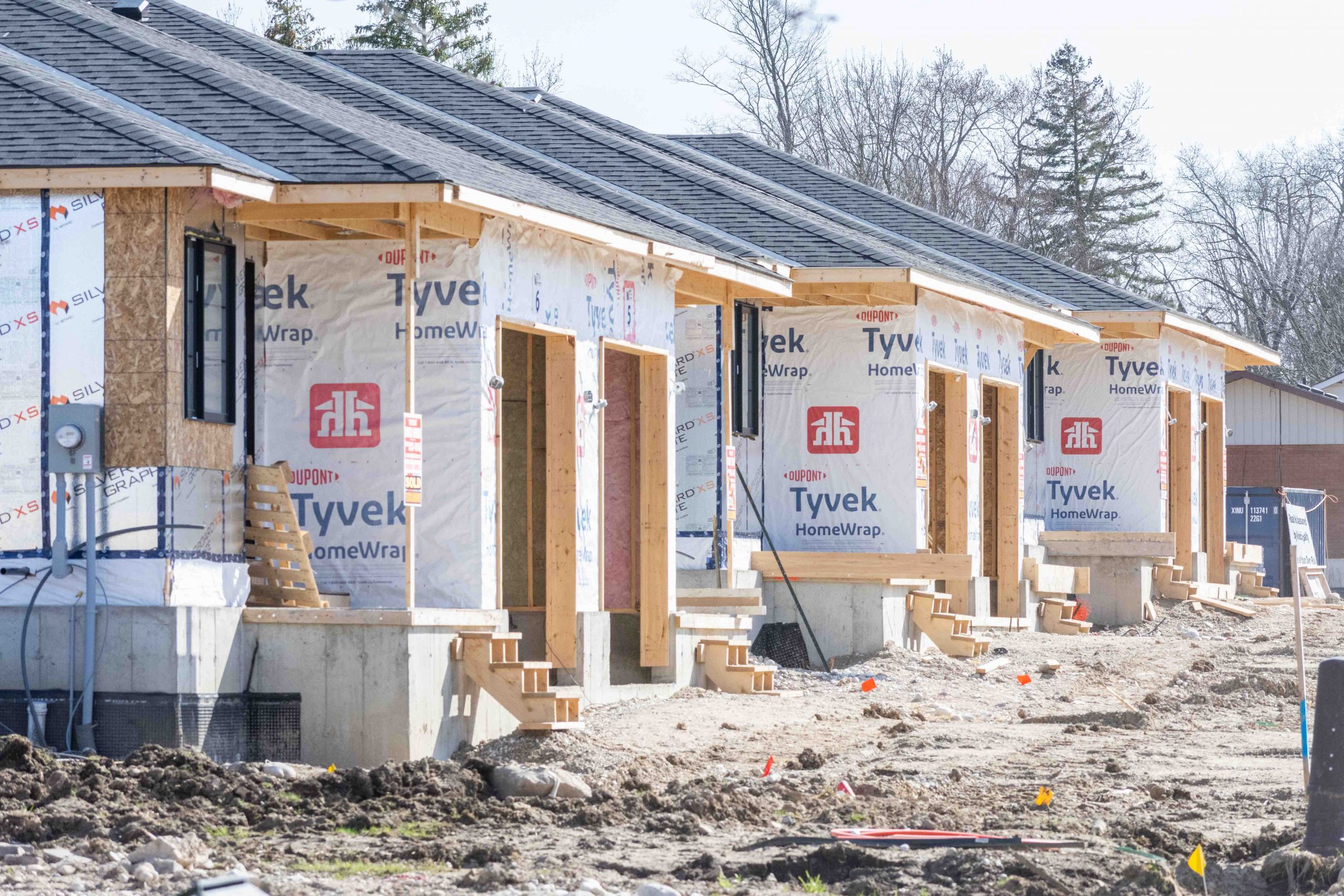WELLINGTON NORTH – Are taxpayers willing to fork out more cash to pay for development?
It’s not a question unique to Wellington North.
The 444 municipalities in Ontario have been forced into a reactionary position and are asking the same question after the Progressive Conservative government passed Bill 23, the More Homes Built Faster Act, at the end of November without consulting municipalities on significant changes it’s ushering in.
Among many changes, the legislation imposes new rules on development charges – a tax on developers used by municipalities to help pay for infrastructure costs demanded by growth – namely how municipalities can collect and spend the money.
In a phone call with the Advertiser, Mayor Andy Lennox said development charges are an “imperfect system” but they’re designed to support a principal of “growth paying for growth.”
“What scares me is that there’s no detail on how this is supposed to be done. There’s no information,” Lennox said, adding the province provided little time for municipalities to submit comments on the heels of an election.
What does the township have to pay for?
Last year, the township endorsed an asset management plan completed by SLBC Advisory Services suggesting 20 per cent of the township’s infrastructure was in poor to very poor condition.
The report pegged the backlog to fix it all at $29.3 million.
The report also suggested there would be $38 million worth of expansion and upgrade work needed to accommodate growth, and an additional $70 million for renewal work on road and water infrastructure.
The Advertiser previously reported average yearly funding would need to increase by an additional $4.9 million, from $11.6 million in 2019-21 to $16.5 million each year during 2022-31, according to the SLBC report.
‘It’s not like we’re pulling the number out of the air’
Lennox said charges are based on estimated project costs.
“There’s a complicated formula you go through to figure out what the development charges should be,” the mayor said.
“It’s not like we’re pulling the number out of the air; it’s based on real, concrete projects.”
The township passed a new development charges bylaw in April after the province made changes to the Development Charges Act, requiring municipalities to pass a new bylaw by Sept. 18, 2022.
But that recently passed bylaw is no longer accurate because Bill 23 requires an increase in development charges to be phased in over five years for municipalities which passed a new bylaw after Jan. 1.
“As a result, we will be publishing new [development charge] rates shortly,” township financial director Farhad Hossain wrote to the Advertiser in an email.
He was unable to provide an immediate estimate on the shortfall of development charges due to Bill 23 or the township’s current development charge reserve balance.
Reducing charges below where they should be, the mayor said, will force the township to look to property taxes and utility bills — though water and wastewater fees cannot be adjusted on a whim and require a background study.
“At the municipal level we don’t have other sources of revenue to tap into,” Lennox said.
In this year’s budget, $15.19 million was allotted for capital spending — up from 2021, but under the $16.5 million per year the township was told it would need to spend on capital to cover expansions, upgrades and renewal work for the next decade.
Tax bills are already around $3,400 per year for the average homeowner in the township.
“Do [taxpayers] want to fork out more dollars to see their community change … I really don’t think there’s an appetite for that,” Lennox said.
Council discussion
Council discussed the bill’s potential effects at its Dec. 5 meeting.
“Not only will it have a negative effect in terms of the dollars coming from development charges to pay for infrastructure to support growth, but also will add an additional administrative burden to staff,” Lennox stated at the meeting, as township CAO Brooke Lambert nodded in agreement.
Lambert noted in a report to council the new legislation requires 60% of the balance of development charge reserves to be spent or allocated each year, starting in 2023, and could force the township to push construction projects forward faster.
Offering further clarification by email, Hossain wrote that required spending and allocations must go toward water, sewer and road projects, identified in the bill as priority services.
Lennox expressed particular concern about the requirement to the Advertiser, saying it takes years for a small municipality to save for major projects.
“There’s the perception that municipalities are sitting on a pot of money and doing nothing with it,” he said.
Other changes include ineligibility of some studies as a source of development charge revenue, an increase to 15 years for consideration of historical charges from 10, and the exclusion of land costs from charges — all of which could have negative financial implications.
Lambert also wrote Bill 23 “has the potential to significantly shift the costs of growth to existing taxpayers” and “does little” to connect growth to a need to pay for infrastructure.
She added: “It seems contradictory to be incenting development on one hand while constraining municipalities from being able to afford, construct, and deliver the services needed to support that growth.”
“(This) scares the hell out of me,” councillor Steve McCabe remarked at the meeting.
“The potential here is that if we don’t have the resources through development charges to build infrastructure to facilitate growth, we [maybe] have to say ‘we don’t have the money to facilitate growth’ and that kind of flies in the face of this whole purpose of the process [which] is to get more homes built faster,” Lennox said.
“I think there’s a lot of questions yet to be answered,” he said. “Unfortunately, it’s going to make our lives more complicated.”
Another report on Bill 23 will be presented to council at its Dec. 19 meeting.




